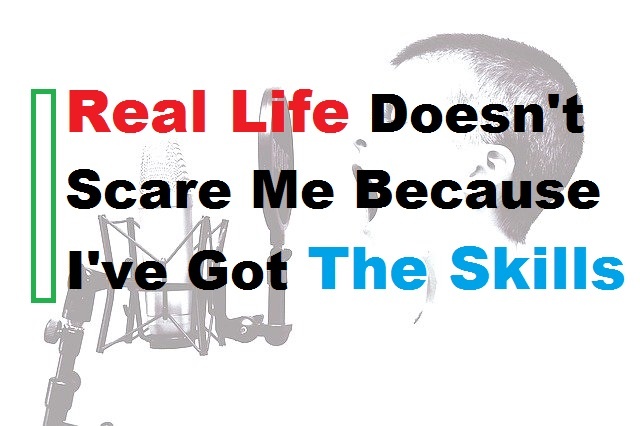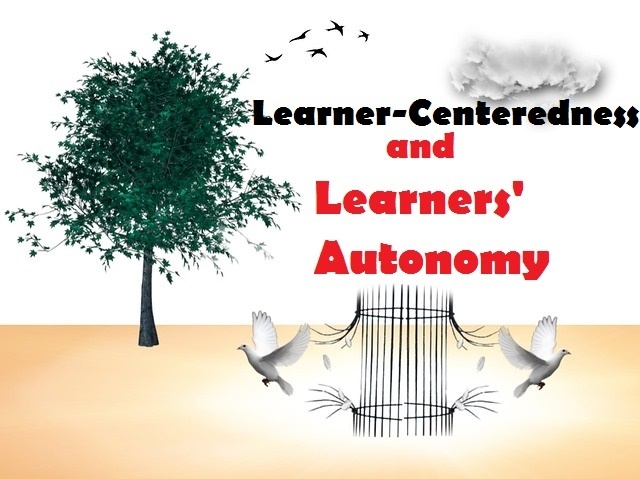Skills Your Students Should Learn
Now, more than before, a lot of students live in a very challenging world that is changing at an incredibly fast rate. With the remarkable development of technology, it is estimated that a great number of students will have jobs that don’t exist today.
While students live in a world where English as the Lingua Franca is being used, a world that is driven by business, commerce, entrepreneurship, and mostly the internet, they still go to schools and study content knowledge and skills that are arguably irrelevant to their real life. We, as teachers, understand the gap between conventional curriculums and students’ future needs and required skills. Nevertheless, we often feel obliged to stick to the plan.
You, as a teacher, have a responsibility to teach your students something beyond factual knowledge and numbers. As a practicing teacher, I will try to introduce students to academic and real-life skills. The best way I have been doing this is through presentations and 5-minutes talks. Students get the chance to know and discuss these skills more in-depth. In this post, I have compiled 35 real-life skills you probably want to introduce to your students.
Surely, nobody can predict the future; however, using the experience we have been accumulating throughout the years, we can safely determine the necessary know-how and real-life skills that will be of great significance to our students.
Let’s go….
35 Essential Real-Life Skills
Here are 35 real-life skills that are incredibly valuable and, frankly, quite fun to incorporate into your class plan.
| Time management skills | the ability to use time effectively or productively, especially at work. |
| Anxiety management skills | The skills students need in order to be able to manage stress, stage fright, and anxiety |
| Test-taking techniques | The strategies students employ to effectively prepare and take tests |
| Note-taking skills | Skills that help students take comprehensive and concise notes in a seminar, conference or an event |
| Vocabulary building strategies | Specific strategies of building vocabulary and lexis when learning a new language |
| Effective writing skills | Knowledge and skills to write effectively – this involves knowing types, rules, subskills of writings |
| Interview skills? | Academic and para-linguistic skills to impress interviewers and get your dream job |
| Research project skills | Skills that relate to executing a research project – this involves collecting data, doing experiments, data analysis and making conclusions |
| Memory skills | Specific strategies that help students remember what they study |
| Presentation skills | Skills and techniques that help students present ideas in front of people, and to express yourself more confidently |
| Collaboration | The ability to work with people to complete a task |
| Effective listening skills | Part of having good communication skills is the ability to listen carefully and interpret the messages. |
| Money management skills | Skills and financial strategies that relate to the process of budgeting, saving, investing, spending money |
| English learning skills | Ways and techniques of effective learning. |
| Learning styles & preferences | Learning about different styles and how to be able to adapt and accommodate differences. |
| Goals setting | How to set smart goals and achieve them |
| Leadership | The ability to inspire and guide people to do something |
| Pronunciation skills | Effective pronunciation skills are necessary in this ever-changing world where English is the lingua franca. |
| Critical thinking | The ability to think critically as well as objectively analyze an issue to form a judgment |
| Tech-savvy skills | Technical skills are the abilities and knowledge needed to perform specific tasks. They are practical skills that relate to the use of information technology |
| Studying in groups | Skills and techniques to work in groups to share insights and ideas |
| Using a mobile phone | Skills to use the mobile phone effectively and for academic purposes |
| The Study Cycle | The ways that students can use to prepare for your exams – this involves preview, skim, note, review and summarize |
| Effective study habits | How to study smarter – this involves your ability to retain information quickly |
| Habits of Highly Successful Students | Techniques and skills that make students successful and great decision-makers |
| Effective reading skills | Skills that help students means engaging with texts, forming links, understanding opinions and research so you can apply what you learn |
| Organizational skills | Skills related to creating structures and order to increase productivity. |
| The Forgetting Curve | How to strengthen memory |
| Self-care skills | Everyday tasks that make you ready to take part in social life such as dressing, eating, cleaning…..etc. |
| The Learning Pyramid Explored | Skills that help your students remember 90% of you study |
| Motivation | How students can motivate and inspire themselves in addition to finding their own own passion |
| Life-long learning | skills to pursuit learning for academic and personal growth |
| Effective speaking skills | Skills that help students become good speakers and a great language communicator |
| Self-confidence | How students can be confident, particularly when they speak in front of people. |
| The law of attraction | The ability to use the power of the mind and thoughts to achieve dreams and desires.
|
Your job as a teacher is helping your students
These real-life skills are so important, and their acquisition will definitely change the future of students. They are inseparable parts of students’ learning. The earlier the students are exposed to such real-life skills, the better. Apart from making them successful in life, they help them develop and apply effective study habits, become highly effective students, and improve the quality of their learning and retention.








You do great. Wish you consider some critics about the implementation of CBA